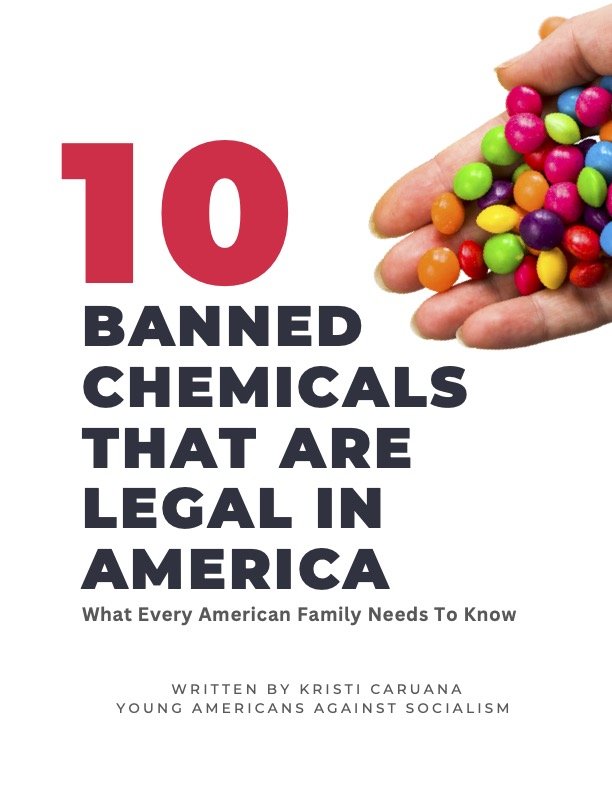Section 230 And The Sale Of Banned Chemicals On EBay: A Legal Analysis

Table of Contents
Understanding Section 230 of the Communications Decency Act
Section 230 of the Communications Decency Act (CDA) is a cornerstone of internet law in the United States. Its impact on online platforms and their legal liability is profound and constantly debated.
Section 230 and Immunity for Online Platforms
Section 230 grants immunity to "interactive computer services" – essentially, online platforms – from liability for user-generated content. This means platforms are generally not treated as publishers or speakers of the content posted by their users. However, this immunity is not absolute.
- Interactive Computer Service: Defined broadly, encompassing websites, online marketplaces like eBay, and social media platforms.
- Information Content Provider: Refers to users who create and post content on these platforms.
- Limitations of Section 230 Immunity: Section 230 does not protect platforms from liability for content they create themselves or for illegal activities they actively participate in. This is crucial in the context of banned chemicals. A platform cannot claim immunity if it knowingly facilitates illegal sales.
The debate surrounding Section 230 is fierce, with arguments ranging from concerns about online harms to the protection of free speech and innovation. Its impact on content moderation practices is particularly significant.
The "Good Samaritan" Clause
The "Good Samaritan" clause of Section 230 encourages platforms to proactively moderate content without fear of increased legal liability. This is intended to incentivize platforms to take steps to remove harmful content, even if some might slip through.
- Encouraging Content Moderation: This clause incentivizes platforms to develop and implement content moderation policies and tools to remove or restrict access to illegal or harmful content, including listings for banned chemicals.
- Self-Regulation: The clause promotes self-regulation among online platforms, allowing them to establish their own community standards and enforcement mechanisms.
However, the application of the "Good Samaritan" clause in the context of banned chemical sales on eBay presents complexities. While encouraging proactive moderation, it also raises questions about the effectiveness and thoroughness of these efforts, particularly when dealing with sophisticated attempts to circumvent platform rules.
eBay's Role and Responsibilities
eBay, as a prominent online marketplace, plays a crucial role in facilitating online sales, including those of potentially dangerous items.
eBay's Policies on Prohibited Items
eBay maintains strict policies prohibiting the sale of various items, including banned chemicals. These policies are designed to comply with both federal and international laws.
- Prohibited Items: These include, but are not limited to, certain pesticides, precursor chemicals used in the manufacture of illicit substances, and other hazardous materials regulated by agencies like the EPA and DEA.
- Detection and Removal: eBay employs various methods to detect and remove listings for prohibited items, including automated systems and human review. However, the sheer volume of listings makes complete enforcement challenging.
The effectiveness of eBay's current systems is a subject of ongoing debate. While eBay actively works to remove prohibited listings, the constant evolution of evasion techniques by sellers necessitates ongoing refinement of their detection methods.
eBay's Liability Under Section 230
The question of whether eBay can claim Section 230 immunity for the sale of banned chemicals by its users is complex and highly contested.
- Arguments for Immunity: eBay could argue it is merely providing a platform and not actively participating in the illegal sales. The platform's efforts to remove listings could be cited as evidence of good faith moderation.
- Arguments Against Immunity: Critics might argue that eBay's knowledge of the prevalence of banned chemical sales, combined with its relatively limited success in removing such listings, suggests a level of participation that could negate Section 230 protection. Cases involving platforms' knowledge of illegal activities on their sites could be cited as precedent.
Analyzing relevant case law and legal precedent is crucial to determining the strength of either argument.
The Legal Implications for Sellers
Individuals selling banned chemicals on eBay face severe legal consequences.
Criminal and Civil Liability for Sellers
Selling banned chemicals online can result in both criminal and civil penalties.
- Potential Charges: These range from violations of federal and state environmental protection laws to charges related to the illegal manufacture, distribution, or possession of controlled substances.
- Potential Penalties: Penalties can include substantial fines, imprisonment, and asset forfeiture.
Numerous real-world cases demonstrate the harsh penalties imposed on individuals involved in the illegal online sale of restricted chemicals.
Enforcement Challenges
Enforcing laws against the online sale of banned chemicals presents significant challenges.
- Identifying Sellers: Tracing the origins of illicit online sales, particularly those involving international transactions, can be extremely difficult.
- Cross-Border Sales: The global nature of online marketplaces complicates enforcement efforts, requiring international cooperation.
- Volume of Listings: The sheer volume of listings on platforms like eBay makes it virtually impossible to manually review every item.
Law enforcement agencies and international collaborations are crucial in tackling this issue, but the resources required are often substantial.
Conclusion
The sale of banned chemicals on eBay highlights the complex interplay between Section 230, platform responsibilities, and individual liability. While Section 230 offers immunity to online platforms for user-generated content, the "active participation" exception presents a gray area when dealing with the knowledge and facilitation of illegal activities. eBay's efforts to combat this issue are ongoing but face significant challenges, particularly with the large volume of listings and the sophistication of those attempting to circumvent platform rules. Sellers, meanwhile, face severe legal consequences.
How can we better balance online platform freedom with the need to prevent the sale of dangerous substances? Further research and discussion into the ongoing evolution of Section 230 and its application to the sale of banned chemicals online are crucial. To learn more about Section 230 and its implications, explore additional resources on the topic. This is a continuing debate with significant consequences for online safety and the legal landscape of e-commerce.

Featured Posts
-
 Instagram Vs Tik Tok Ceos Testimony Reveals A Grow Or Die Mentality
May 11, 2025
Instagram Vs Tik Tok Ceos Testimony Reveals A Grow Or Die Mentality
May 11, 2025 -
 Dityachi Foto Printsa Endryu Yuvileyniy Den Narodzhennya
May 11, 2025
Dityachi Foto Printsa Endryu Yuvileyniy Den Narodzhennya
May 11, 2025 -
 New Song Suggests Jessica Simpsons Marriage Troubles With Eric Johnson
May 11, 2025
New Song Suggests Jessica Simpsons Marriage Troubles With Eric Johnson
May 11, 2025 -
 Sheehans Resilience Ipswich Town Remain Undeterred
May 11, 2025
Sheehans Resilience Ipswich Town Remain Undeterred
May 11, 2025 -
 Updated Injury Report Rays Vs Yankees Series April 17 20
May 11, 2025
Updated Injury Report Rays Vs Yankees Series April 17 20
May 11, 2025
